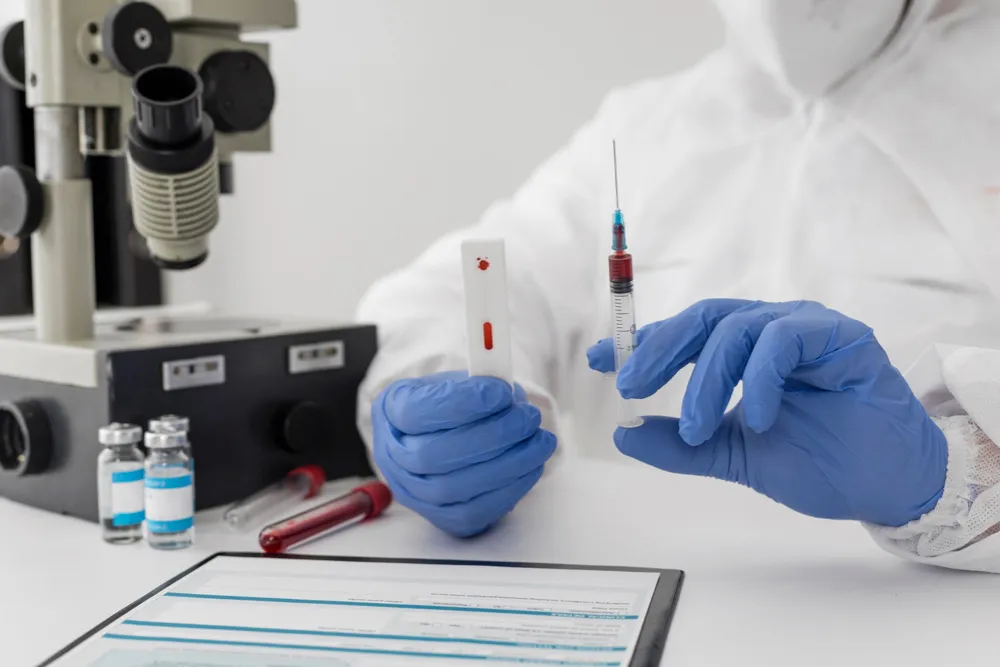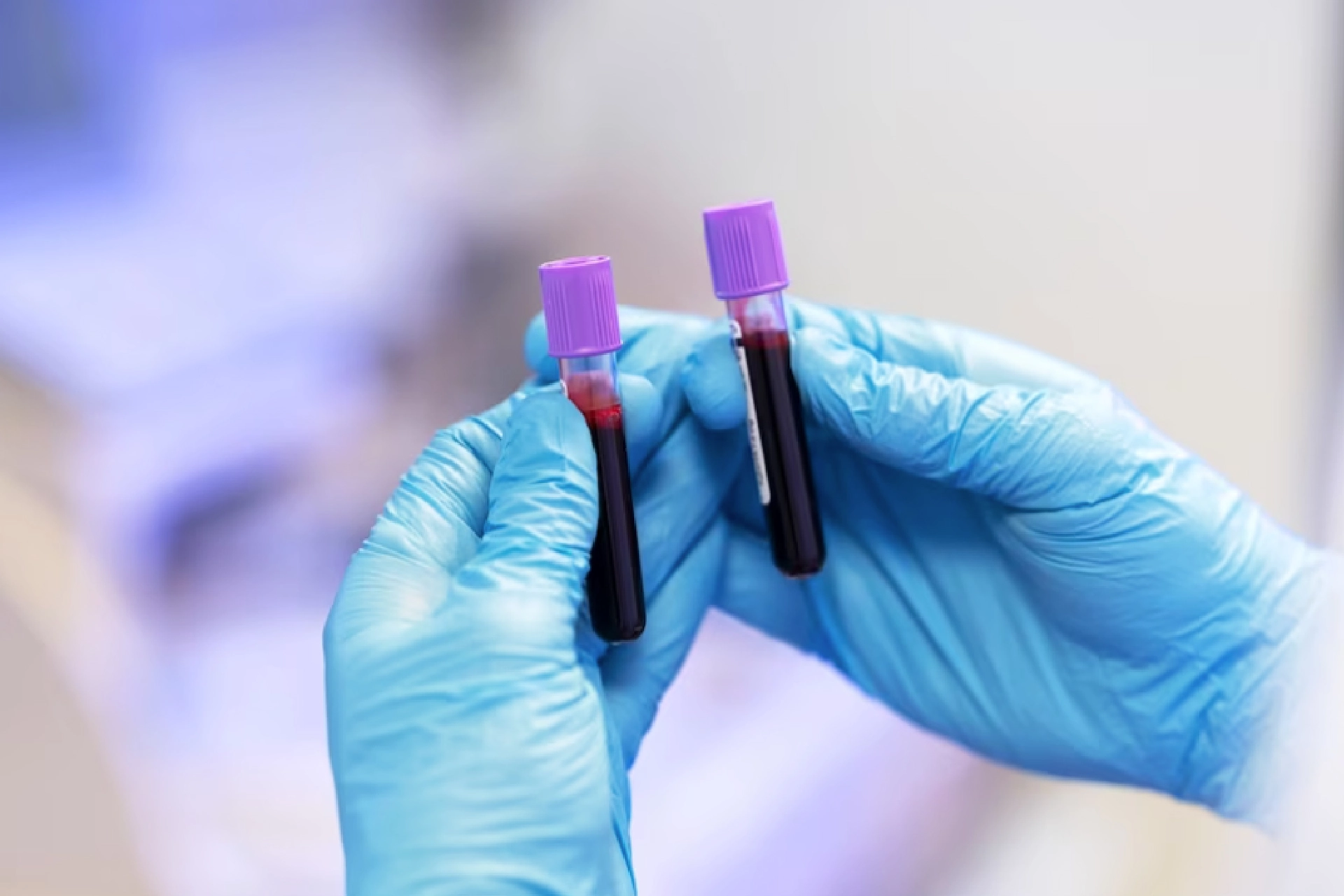Health Tests | 4 min read
What is the Alkaline Phosphatase Level Test? What is its Importance?
Medically reviewed by
Table of Content
Key Takeaways
- Alkaline phosphatise is found in liver, kidneys, bones, and digestive system
- Alkaline phosphatase levels differ based on age, blood type, and gender
- Alkaline phosphatase level test is done to determine liver or bone disorders
Alkaline phosphatase is an enzyme present in your body. It is mostly found in your liver, digestive system, kidneys, and bones [1]. Alkaline phosphatase leaks into the bloodstream if your liver is damaged. Your doctor may order an alkaline phosphatase level test if you show signs of a bone or liver disorder.
With an alkaline phosphatase level test, doctors can measure the amount of alkaline phosphatase present in your blood. High levels of ALP may indicate liver or bone disorders. It is often a part of other blood tests. Read on to know more about the ALP blood test.
Additional Read: Chest CT Scan: What are CT Scans and How Effective is CT Scan for COVID?
Why Is an Alkaline Phosphatase Level Test Done?
An alkaline phosphatase level test is done as a part of a routine checkup or if you have symptoms of liver damage or bone disorder. If you have jaundice, abdominal pain, nausea, or vomiting, it may be a sign of liver or gallbladder problems. The ALP test can help identify conditions like blockage of bile ducts, cholecystitis [2], cirrhosis, and some form of hepatitis. An ALP test may also be done if you take medications that can damage your liver. The test is often conducted along with other common liver function tests.
An ALP test determines problems with your bones. It can be helpful in the diagnosis of conditions including rickets, osteomalacia [3], Paget’s disease [4], or issues caused by vitamin D deficiency. It can also help in investigating cancer tumors, unusual growth in bones, or checking the status of your treatment. Your doctor may order an ALP test if you have symptoms of bone disorders such as pain in the bones or joints, and enlarged or abnormally shaped bones.

How to Prepare for the ALP Blood Test?
No special preparations are needed for the alkaline phosphatase test. Doctors may only recommend fasting for 10-12 hours as eating can interfere with your ALP levels. Some medications can also affect your ALP levels. Therefore, it is better to tell your doctor if you take any medicines or supplements. Also let the doctor know if you are pregnant as it can increase the ALP levels in your blood.
How Is an Alkaline Phosphatase Test Performed?
An alkaline phosphatase test is a type of blood test. During the test, your elbow skin is disinfected first. Then, a health professional will draw your blood with a needle and collect the sample in a small test tube or vial. The process doesn’t take more than five minutes. You may feel a little pain, discomfort, or a sting during the process. Your blood sample is then analyzed in a laboratory.
What Does the ALP Test Result Mean?
The normal range for alkaline phosphatase levels differs depending on your age, blood type, gender, and conditions like pregnancy. According to a 2013 review, ALP normal range is 20 to 140 IU/L [5]. However, the normal range may vary. An abnormal ALP level may mean a problem with the liver, gallbladder, or bones. It may also indicate kidney cancer tumors, malnutrition, problems with the pancreas, or an infection.
If you have higher than normal alkaline phosphatase levels, it may indicate the following liver or gallbladder problems.
Gallstones
Bile ducts
Cirrhosis
Liver cancer
Certain types of hepatitis
A high level of ALP is also associated with the following bone problems.
Rickets
Paget’s disease
Bone cancer
An overactive parathyroid gland
In rare cases, a high level of ALP may indicate heart failure, mononucleosis, bacterial infection, or certain cancers like kidney cancer.
If you have lower than normal alkaline phosphatase levels, it may indicate protein deficiency, Wilson’s disease, malnutrition, and vitamins deficiency. A low ALP can also be an effect of hypophosphatemia, a rare condition that causes fragile bones which can easily fracture. If the ALP levels are abnormal, your doctor may order more tests such as isoenzyme tests [6] to make a diagnosis and offer treatment.
Additional Read: RT-PCR Test: Why And How to Book RT-PCR Test? Important Guide
Your doctor may be better able to depict your alkaline phosphatase test results as it differs according to age and gender. Make sure you consume significant vitamin D foods and supplements. Also practice a healthy lifestyle for your overall health. You can make use of Bajaj Finserv Health to book lab tests such as blood and gallbladder tests. Besides, you can consult the best doctors and specialists on the platform, and say yes to healthy living.
References
- https://medlineplus.gov/lab-tests/alkaline-phosphatase/
- https://www.ncbi.nlm.nih.gov/pmc/articles/PMC6728249/
- https://www.versusarthritis.org/about-arthritis/conditions/osteomalacia/
- https://medlineplus.gov/pagetsdiseaseofbone.html
- https://www.ncbi.nlm.nih.gov/pmc/articles/PMC4062654/
- https://medlineplus.gov/ency/article/003497.htm
Disclaimer
Please note that this article is solely meant for informational purposes and Bajaj Finserv Health Limited (“BFHL”) does not shoulder any responsibility of the views/advice/information expressed/given by the writer/reviewer/originator. This article should not be considered as a substitute for any medical advice, diagnosis or treatment. Always consult with your trusted physician/qualified healthcare professional to evaluate your medical condition. The above article has been reviewed by a qualified doctor and BFHL is not responsible for any damages for any information or services provided by any third party.




